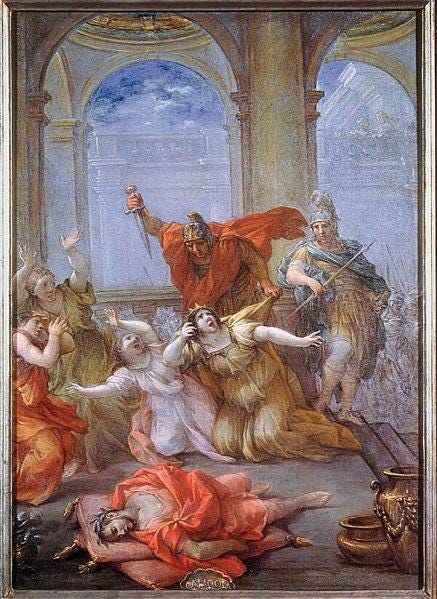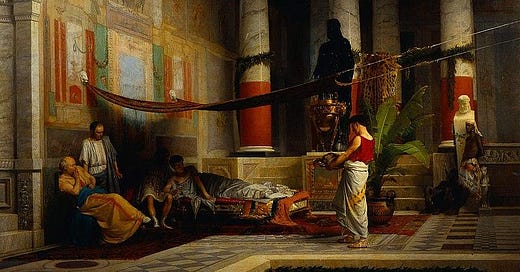The Julio Claudian Dynasty: First Caesars of Rome (Part Two)
It is the 24th of January, AD 41. The 28-year-old Emperor of the Roman Empire, a favorite mascot of the army who had ascended unchallenged to the throne only four years earlier has just been stabbed to death in the tunnels under his own palace, by his own guards.
In the century leading up to his death four men, all from the same family, tried to hold absolute power in Rome. Two of them led long and peaceful lives atop a peaceful and prosperous civilization. The other two, Julius Caesar and now Caligula, were murdered in broad daylight at the very heart of their empire. Their crime? They wanted too much.
When looking for differences between Caligula and his two predecessors Augustus and Tiberias, one could simply conclude that the youthful Caligula was too wild, his vices too demonic to rule, and that he may indeed have been mad, as legions of commentators would say. But there is something subtler under the surface, something which speaks of the position that Rome found herself in with his death.
Caligula was not unusual because he wielded absolute power. His predecessors held the same imperium he did, ruling for decades without serious risk to their position. But Caligula did something else: in his omnipotence he ignored the niceties of his court.

The Senate was still a very real thing during his reign. And while Caligula was technically right in his position that he could do what he wanted without their position, he was foolish to mock these powerful and ambitious men in this way. In this misjudgment lay his downfall.
Rome was learning, in real time, about the difficulties of (semi) hereditary rule. With one man in charge the fortunes of an empire hung on his decisions, and while this resulted in quick decision making and agile policy, it very much depended on that one man.
The corridors of power in Rome had been seriously shaken by that realization. The priority had been to murder Caligula and his immediate family, but once these were accomplished it needed to be decided as to what to do next.
The possibility of Rome returning to a Republic was the popular choice. Forget these emperors, they were originally supposed to deal with a time of crisis and there was no crisis now, expecting those the emperors caused.
However, this was destroyed by the ambition of the Senate. In killing Caesar his guards had created a dozen hopefuls who could see themselves holding absolute power. The Senate wanted to appear united in its condemnation of Caligula, but in reality they were divided individuals, self-interested, mistrustful, and unwilling to work together.
Keep reading with a 7-day free trial
Subscribe to AllThatHistory Weekly to keep reading this post and get 7 days of free access to the full post archives.





